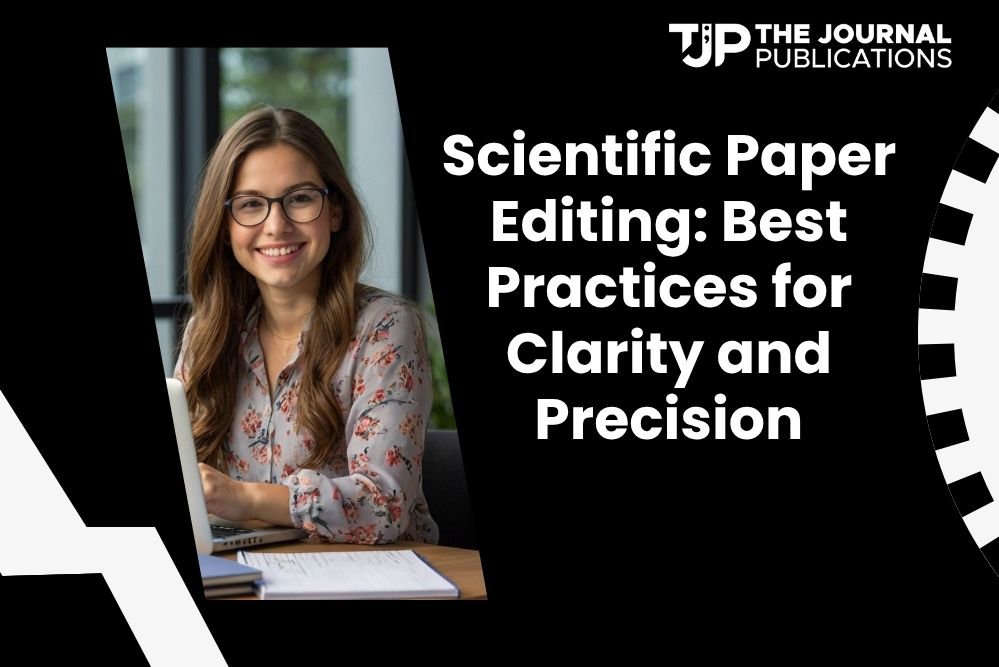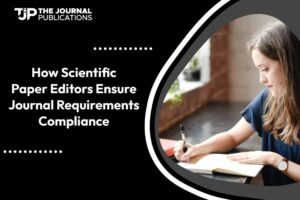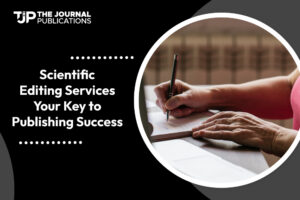Table of Contents
- Intro
- Importance of Scientific Paper Editing
- Best Practices for Clarity and Precision
- Common Mistakes to Avoid During Editing
- FAQs
- Closing Note
Intro
Editing is likely the most important process in writing a scientific paper. Once data have been collected and a hypothesis has been developed, a paper loses its power if not clearly articulated. Scientific paper editing enhances readability and accuracy in the message being delivered. Editing aims to make your research findings accessible as accurately as possible so they strike a chord with your target audience—whether peers, professors, or journal reviewers.
Importance of Scientific Paper Editing
Due to a great level of formalism and technicality, scientific writing inescapably necessitates lucid terminology to fend off doubt. Articles that have been slovenly edited or proofread may cause misunderstanding, misinterpretation, disillusionment with the publishing process, or flat-out rejection by the journal, where properly polished work would have attained the desired effect! The scientific paper editing must be flawless to allow the interpretation of the study with clear distinction and precision.

Best Practices for Clarity and Precision
Organise Your Paper Structure
A transparent format is the skeleton of any successful scientific paper. Stick to the traditional format for your discipline (e.g., Introduction, Methods, Results, Discussion) and have each section well outlined and logically progressing from one to another. Begin with a robust introduction that contextualises your research and culminates in an unmistakable research question or hypothesis.
In the discussion section, make sure that every argument or observation is connected to your results, and do not introduce new data here. A good organisation serves to lead the reader through your research and to make your argument more understandable.
Simplify Complex Sentences
In scientific paper editing and writing, it is simple to find yourself in complex sentences full of technical jargon. Yet highly complex sentences do nothing but muddy the reader’s understanding and muddy your message. Where possible, simplify, cutting long sentences down into short ones that are more manageable. Each sentence should contain one point simply and succinctly.
For example, rather than saying
“The results of the study, conducted over two years and incorporating information gathered at multiple geographic points, demonstrate strong variation in the incidence of disease transmission between groups, with some variables figuring disproportionately in the explanation of the variance found in the data set.
“The research, spanning two years across several sites, reveals large differences in rates of disease transmission. Certain variables explained more of the variance seen than others.”
Ensure Consistency in Terminology and Format
Consistency of language and formatting matters when writing in scientific contexts. Use the same names for things across your paper to refer to ideas, variables, and approaches. For instance, if you describe a specific measurement in one section, employ the same unit and abbreviation across the rest of your paper.
Consistency in formatting is also crucial. Obey the guidelines of formatting issued by your destination journal or institution. This includes citation styles, typography, headings, and reference sections. A consistent format will help your paper not only to look professional but also to assist the readers to go through the contents with relative ease. If you’re fumbling at this point, consider having a scientific paper editing service help you.
Correct Grammar and Punctuation
People should always use computers with word processors equipped with spelling and grammar checks, because even the slightest mistakes, like missing commas or using the wrong verb tense, can completely alter the meaning of a sentence as well as make it sound like gibberish. Pay enough attention to subject-verb agreement, sentence structure and punctuation.
Just do a quick check with Grammarly or any brief writing app like Hemingway. Proofread carefully by hand so you can catch errors your computer-programmed automatons may not be able to. Other than that, you can also obtain a scientific paper editing service for enhanced results.
Use Clear and Concise Language
Avoid using jargon or high-flown language if possible. The role of writing is to convey complex scientific ideas clearly and concisely. Define medical terms when they appear for the first time, and do not overuse them. To minimise any misunderstanding, clear language permits your paper to be read by a larger audience, including possible laymen. For example, say, “The mechanism by which this is happening is still under investigation and has yet to be fully worked out,” instead, go for: “The mechanism is still being investigated.”

Common Mistakes to Avoid During Editing
During editing, there are quite a number of common errors that can devalue the quality of your scientific paper:
Overuse of Passive Voice
Passive voice is typical of scientific writing, but excessive use makes your writing tedious. More examples could include: “The experiment was done” equals “We did the experiment.”
Excessive Technical Terms
Sometimes, technical jargon cannot be avoided, but its excessive usage drives the reader away. Therefore, find a way to balance technical correctness and readability.
Neglecting the Conclusion
If the conclusion is weak or lacking substance, the implications of the results may seem vague. Thus, be sure to encapsulate all findings and offer a discussion of their implications before ending the conclusion section.
FAQs
How do I know that my paper is clear and concise?
Read your paper aloud while a peer reads along. If someone can comprehend the work in a new way uninitiated in the research, your document is probably going fine. Also, keep an eye out for vocabulary simplifications and redundancies that may be excluded.
Should I focus on grammar or content first when editing?
Content must always precede. Get your research well-supported and logically organised before considering grammar and punctuation. Once content is guaranteed to be good, grammatical and stylistic editing will make it easier to read.
Can I use editing tools like Grammarly for scientific papers?
Of course, grammar and punctuation checks can be part of the tools used to edit; one such tool is Grammarly. Yet, they are best used along with manual proofreading since such software may fail to detect some domain-specific matters or subtleties in scientific writing.
Close
Good scientific paper editing is the crucial step in writing a clean, concise and effective scientific paper. Best practice says that with the structure of your research outlined, you should have the language put into new words, make checks for consistency and butcher it diligently so your research comes across clearly and in a dignified manner.





